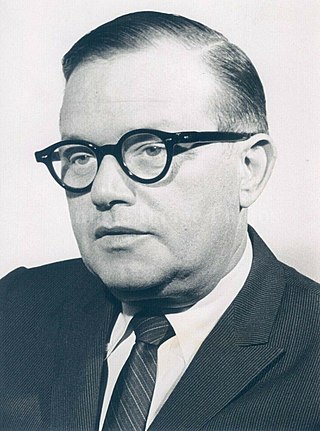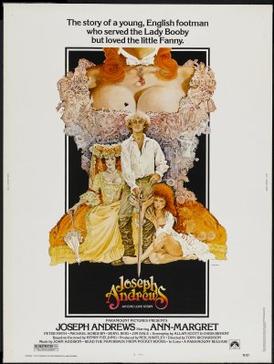Related Research Articles

Jule Styne was an English-American songwriter and composer widely known for a series of Broadway musicals, including several famous frequently-revived shows that also became successful films: Gypsy,Gentlemen Prefer Blondes, and Funny Girl.

The Romani people, also known as the Roma, are an Indo-Aryan ethnic group who traditionally lived a nomadic, itinerant lifestyle. Linguistic and genetic evidence suggests that the Romani people originated in the Indian subcontinent, in particular the region of Rajasthan. Their first wave of westward migration is believed to have occurred sometime between the 5th and 11th centuries. They are thought to have first arrived in Europe sometime between the 9th and 14th centuries. Although they are widely dispersed, their most concentrated populations are believed to be in Bulgaria, Hungary, Romania, Serbia and Slovakia.

The University of St Andrews is a public university in St Andrews, Scotland. It is the oldest of the four ancient universities of Scotland and, following the universities of Oxford and Cambridge, the third-oldest university in the English-speaking world. St Andrews was founded in 1413 when the Avignon Antipope Benedict XIII issued a papal bull to a small founding group of Augustinian clergy. Along with the universities of Glasgow, Aberdeen, and Edinburgh, St Andrews was part of the Scottish Enlightenment during the 18th century.

St Andrews is a town on the east coast of Fife in Scotland, 10 miles southeast of Dundee and 30 miles northeast of Edinburgh. St Andrews had a recorded population of 16,800 as of 2011, making it Fife's fourth-largest settlement and 45th most populous settlement in Scotland.

The Copley Medal is the most prestigious award of the Royal Society, conferred "for sustained, outstanding achievements in any field of science". It alternates between the physical sciences or mathematics and the biological sciences. Given annually, the medal is the oldest Royal Society medal awarded and the oldest surviving scientific award in the world, having first been given in 1731 to Stephen Gray, for "his new Electrical Experiments: – as an encouragement to him for the readiness he has always shown in obliging the Society with his discoveries and improvements in this part of Natural Knowledge". The medal is made of silver-gilt and awarded with a £25,000 prize.
Angloromani or Anglo-Romani is a Para-Romani dialect spoken by the Romanichal, a subgroup of the Romani people in the United Kingdom and other parts of the English-speaking world. It is characterised by the presence of Romani vocabulary and syntax in the English used by Romanichal.

Sylvana Palma Windsor, Countess of St Andrews is a Canadian-born academic and historian. By virtue of marriage she is a member of the House of Windsor and is related to the British royal family as the wife of George Windsor, Earl of St Andrews, eldest son of Prince Edward, Duke of Kent, second cousin of King Charles III.

The Romanichal are a Romani subgroup within the United Kingdom and other parts of the English-speaking world. Many Romanichal speak Angloromani, a mixed language that blends Romani vocabulary with English syntax. Romanichal residing in England, Scotland, and Wales are part of the Gypsy (Romani), Roma, and Traveller community.

St. Andrews University is a private Presbyterian university in Laurinburg, North Carolina. It was established in 1958 as a result of a merger of Flora MacDonald College in Red Springs and Presbyterian Junior College; it was named St. Andrews Presbyterian College from 1960 until 2011 when the college changed its name to St. Andrews University. That same year, it merged with Webber International University of Babson Park, Florida. It is also home to the St. Andrews Press. In 2013, St. Andrews added its first graduate program, an MBA in business administration.
Alex Woolf is a British medieval historian and academic. He specialises in the history of Britain and Ireland and to a lesser extent Scandinavia in the Early Middle Ages, with a particular emphasis on interaction and comparison across traditional ethnic boundaries. He is a senior lecturer at the University of St Andrews.
Scottish Romani are the Romani people of Scotland. This includes Romanichal and Lowland Romani.
Dina Iordanova is an educationalist and Professor of Film Studies at the University of St. Andrews. A specialist in world cinema, her special expertise is in the cinema of the Balkans, Eastern Europe, and Europe in general. Her research approaches cinema on a meta-national level and focuses on the dynamics of transnational film; she has special interest in issues related to cinema at the periphery and in alternative historiography. She has published extensively on international and transnational film art and film industry, and convenes research networks on film festivals and on the Dynamics of World Cinema, with funding from the Leverhulme Trust.

Joseph Andrews is a 1977 British period comedy film directed by Tony Richardson. It is based on the 1742 novel Joseph Andrews by Henry Fielding.
James Franklin Kay is the Joe R. Engle Professor of Homiletics and Liturgics Emeritus, and Dean and Vice President of Academic Affairs Emeritus at Princeton Theological Seminary.
The Abdals are a largely Turkish-speaking ethnic group found in much of Anatolia and parts of the Balkans and Syria, who follow an itinerant lifestyle. This lifestyle is closely connected with the activity of music making at weddings and circumcision parties. Other occupations associated with the Abdal include tinning, basket making and sieve manufacture.
Elena Marushiakova is a historian and ethnographer working in field of Romani Studies, of Slovak and Russian origin, who has lived and studied in Slovakia and Bulgaria. In 2016 she became a research professor in the School of History at the University of St Andrews. Elena Marushiakova became the president of the Gypsy Lore Society.

Leyla Hussein is a Somali-born British psychotherapist and social activist. She is the founder of Dahlia project, one of the co-founders of the Daughters of Eve non-profit organization and a Chief Executive of Hawa's Haven. In 2020, Hussein was elected Rector of the University of St Andrews, making her the third woman and first woman of colour to hold this position. Hussein received significant criticism during her role as Rector of the University of St Andrews owing to her lack of involvement in the role.

Frances Helen Melville, was a Scottish suffragist, advocate for higher education for women in Scotland, and one of the first women to matriculate at the University of Edinburgh in 1892. She was president of the British Federation of University Women from 1935 to 1942.
Judith Melita Okely is a British anthropologist who is best known for her ethnographic work with the traveller gypsies of England. She is an Emeritus Professor of Social Anthropology, University of Hull and Research Affiliate of the School of Anthropology, University of Oxford. Her research interests encompass fieldwork practice, gypsies, feminism, autobiography, visualism, landscape representations, and the aged, mainly within Europe. The UK Data Service lists her as a "Pioneer of Social Research".

St. Andrew’s College, formerly the Presbyterian Theological College, is a degree-granting, accredited theologically ecumenical seminary of the United Church of Canada. It is located in Saskatoon, Saskatchewan, and was the second affiliated college of the University of Saskatchewan. Along with the College of Emmanuel and St. Chad, and the Lutheran Theological Seminary, Saskatoon, it makes up the Saskatoon Theological Union (STU).